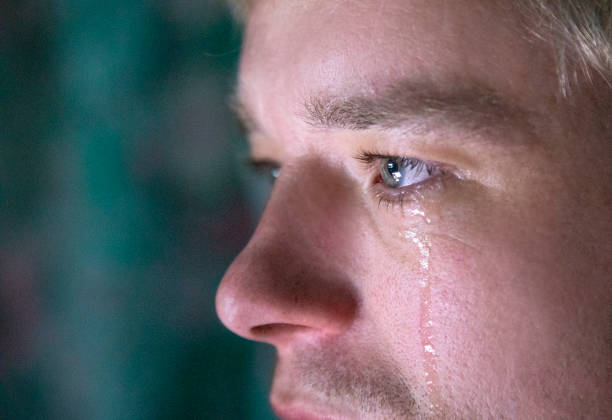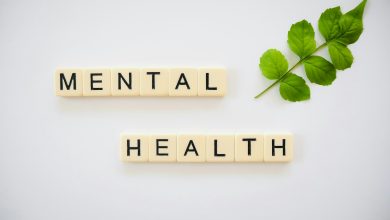The 7 Stages Of Grief, Physical Symptoms, Worst Period, FAQs

What is Grief?
Grief is a natural and normal response to the loss of someone or something that was important to us. It is a complex emotion that can affect people in many different ways, both emotionally and physically.
Grief can be experienced in response to a wide range of losses, including the death of a loved one, the end of a relationship, a significant life change, or the loss of a job. It is a process that involves coming to terms with the reality of the loss, experiencing a range of emotions (such as sadness, anger, guilt, or regret), and adjusting to life without the person or thing that was lost.
Grief is a highly individual experience, and there is no right or wrong way to grieve. Some people may experience intense feelings of sadness and emotional pain, while others may feel numb or disconnected. Some people may want to talk about their feelings, while others may prefer to keep their emotions to themselves. There is no set timeline for grief, and it can take months or even years to fully process and come to terms with a loss.
While grief is a natural and normal response to loss, it can also be a challenging and difficult experience. Some people may struggle to cope with their emotions, and may experience depression, anxiety, or other mental health issues as a result of their grief. It is important for people who are grieving to seek support from loved ones, friends, or mental health professionals in order to help them navigate this challenging time.
What are the 7 stages of grief in order?
The concept of “The 7 Stages of Grief” was first introduced by psychiatrist Dr. Elisabeth Kubler-Ross in her 1969 book “On Death and Dying“. The stages were originally identified in the context of people who were facing their own death, but they have since been applied more broadly to the process of grief in response to any type of loss. The 7 stages of grief are:
1. Shock and denial: In this stage, the person may have difficulty accepting the reality of the loss. They may feel numb or disconnected and may struggle to believe that the loss has actually occurred.
2. Pain and guilt: In this stage, the person may experience intense feelings of sadness, anger, or guilt. They may replay events leading up to the loss and may blame themselves or others for what happened.
3. Anger and bargaining: In this stage, the person may feel a sense of frustration or helplessness, and may lash out at others or question their faith or beliefs. They may also engage in bargaining behavior, such as trying to negotiate with a higher power to bring back what was lost.
4. Depression and reflection: In this stage, the person may feel a deep sense of sadness and may withdraw from social activities or responsibilities. They may spend time reflecting on memories and may struggle to find meaning or purpose in their life without what was lost.
5. The upward turn: In this stage, the person may begin to feel a sense of hope or healing. They may start to see a way forward and may begin to focus on positive aspects of their life or future goals.
6. Reconstruction and working through: In this stage, the person may begin to take action to rebuild their lives and move forward. They may seek support from loved ones, engage in new activities or hobbies, or make changes to their daily routine.
7. Acceptance and hope: In this final stage, the person may come to a place of acceptance and peace with what was lost. They may feel a sense of closure and may be able to move forward with hope and optimism for the future.
It’s important to note that not everyone experiences these stages in the same order or at the same pace. The grieving process is highly individual and can vary depending on factors such as the nature of the loss, the person’s personality and coping style, and the amount of support they have from loved ones and professionals.
When is grief the worst?
The intensity and duration of grief can vary widely depending on a range of factors, such as the nature of the loss, the person’s relationship with the person or thing they’ve lost, their support system, and their individual coping style. Grief can be especially difficult and intense during the following situations:
1. Sudden or unexpected loss: When a loss occurs suddenly or without warning, such as through an accident or sudden illness, it can be especially traumatic and difficult to process.
2. Loss of a child: The loss of a child, regardless of age, is often considered one of the most difficult types of loss to cope with, as it is a profound violation of the natural order of life.
3. Multiple losses: When a person experiences multiple losses in a short period of time, such as the death of several family members or friends, the cumulative impact can be especially overwhelming.
4. Complicated grief: Some people experience a type of grief that is more intense and prolonged than typical grief, known as complicated grief. This can occur when a person is unable to come to terms with the loss or struggles to move forward and may require professional intervention to help process and cope with their grief.
5. Lack of support: Grief can be especially difficult when a person lacks a supportive network of family, friends, or professionals to help them through the grieving process.
It’s important to remember that there is no right or wrong way to grieve and that everyone experiences grief differently.
What does grief do to your body?
Grief is a natural and normal response to loss, but it can have a significant impact on a person’s physical and emotional well-being. Here are some ways that grief can affect the body:
- Physical symptoms: Grief can cause a range of physical symptoms, including fatigue, headaches, body aches, digestive issues, and difficulty sleeping.
- Suppressed immune system: Grief can weaken the immune system, making a person more susceptible to illness and disease.
- Increased stress hormones: The stress of grief can cause an increase in the levels of cortisol and adrenaline in the body, which can lead to high blood pressure, heart disease, and other health issues.
- Emotional distress: Grief can cause intense feelings of sadness, anxiety, anger, and guilt, which can lead to depression, social withdrawal, and other mental health concerns.
- Changes in appetite: Grief can cause changes in appetite, leading to weight loss or gain, and can also impact a person’s ability to taste or enjoy food.
- Fatigue: Grief can be emotionally and physically exhausting, leading to feelings of lethargy and low energy.
It’s important to take care of oneself during the grieving process and seek support from loved ones or professionals when needed. Engaging in self-care practices such as exercise, healthy eating, and stress-reducing activities like meditation or therapy can help mitigate some of the physical and emotional effects of grief.
How long does grief last?
Grief is a highly individual and personal experience, and there is no set timeline for how long it lasts. The length and intensity of grief can vary depending on factors such as the nature of the loss, the relationship to the person or thing that has been lost, and a person’s own coping mechanisms and support systems.
While there is no specific time frame for the grieving process, it is generally understood that grief can last for several months or even years, especially in the case of significant losses such as the death of a loved one or a major life change. However, it is important to note that grief does not necessarily follow a linear path and may involve cycles of intense emotions, periods of acceptance and healing, and then another wave of grief.
The most important thing for someone experiencing grief is to allow themselves the time and space to process their feelings in their own way, and to seek support from loved ones or a mental health professional if needed.
How To Deal With Grief
Grief is a highly personal experience, and there is no “right” or “wrong” way to deal with it. However, there are some strategies that may be helpful for coping with grief:
1. Allow yourself to feel your emotions: Grief can involve a wide range of emotions, from sadness and anger to guilt and regret. It’s important to allow yourself to feel these emotions and not try to suppress them.
2. Seek support: It’s important to have a support system during the grieving process, whether it’s through friends and family or a professional therapist. Talking about your feelings can be helpful and healing.
3. Take care of yourself: Grief can be physically and emotionally exhausting, so it’s important to practice self-care. This may include getting enough sleep, eating a balanced diet, and engaging in physical activity.
4. Be patient with yourself: Grief is a process that can take time, so it’s important to be patient with yourself and not expect to “get over it” quickly. It’s okay to take as much time as you need to heal.
5. Find ways to remember the person or thing you lost: Many people find comfort in finding ways to remember their loved ones, such as creating a memorial, planting a tree, or making a scrapbook.
6. Consider joining a support group: Joining a grief support group can provide a sense of community and understanding with others who are experiencing similar feelings.
7. Practice stress-reducing techniques: Engaging in stress-reducing techniques such as meditation, yoga, or deep breathing exercises can help manage the physical and emotional symptoms of grief.
Remember that everyone experiences grief differently, so it’s important to find the strategies that work best for you. Don’t be afraid to reach out for help if you need it.





